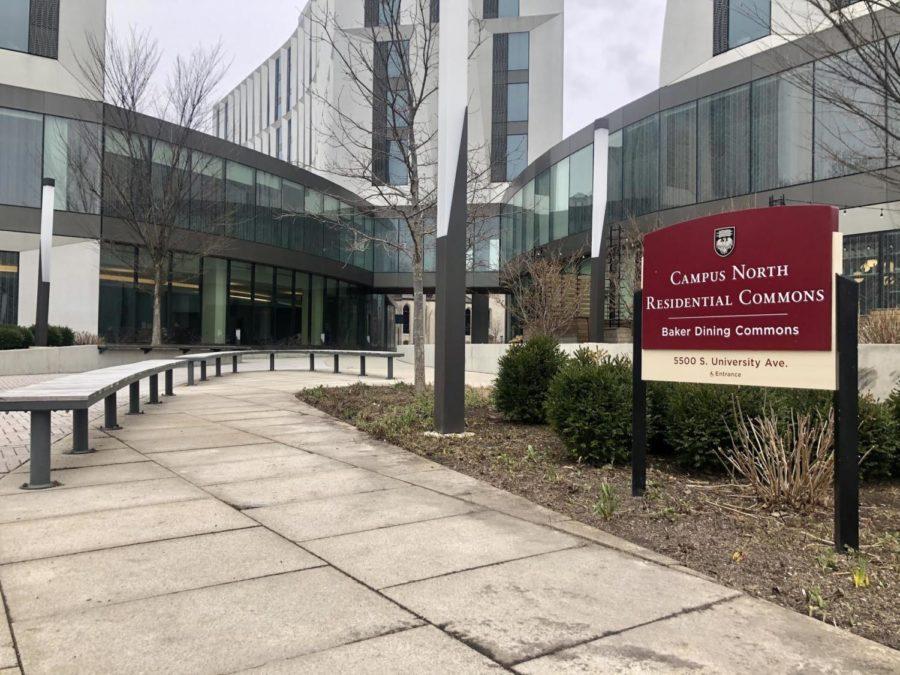Resident assistants (RAs) will be compensated for remote work this spring quarter, top administrators told RAs in an email Sunday afternoon. The announcement reverses the University’s earlier decision that it would not pay RAs for spring quarter.
In their email on Sunday, Dean of Students in the University Michele Rasmussen and Assistant Vice President for Campus Life Richard Mason wrote that the University’s decision follows “helpful feedback” from students and housing staff about RAs’ role on campus.
“We have come to recognize the ongoing importance of your role in our residential communities and the opportunities for continuing to support your students, even if they are no longer physically present on campus,” Rasmussen and Mason wrote in the email on Sunday.
RAs now have the choice to work remotely; if they opt to do so, they will be paid their quarterly stipend of $3,404 for spring quarter.
The email said Residential Life is currently working to “plan out what ‘virtual’ RA work will look like,” but that it will involve regular check-ins with Residential Life staff, continued guidance for students in crisis situations, and other remote assignments for College Housing.
The University’s earlier decision not to pay RAs had drawn a flood of criticism from students and alumni, with a petition to pay RAs collecting over 1,900 signatures after it was posted online late Friday night.
“The PHYSICAL presence of our RAs is honestly barely half of what they do—so much of what makes our RAs worth their salt is their EMOTIONAL labour, which they no doubt will continue to provide through the end of the year,” one commenter wrote below the petition.
Associate English professor Chris Taylor, a member of the Committee of the College Council, sent an open letter to the faculty governing body on Saturday night, saying they intended to put RA pay on the committee’s agenda.
“The actual money in aggregate is so small as to be comical,” Taylor wrote, adding, “If the reason for [RAs’] non-payment is simply budgetary unit discipline, we should rethink and suspend the latter.”
Administrators had originally decided not to pay RAs next quarter because RAs will not live in University housing. All students must leave the dormitories by March 22 in response to COVID-19.
Several RAs pointed out that their job contract specifies a term of employment from September to June. Many have also said they expect to be planning virtual house activities and acting as informal advisors to residents for the rest of the academic year.
“We would’ve been fielding calls and questions anyway so I’m glad we’re getting recognition for it,” third-year Tala Ali-Hasan, an RA for Flint House in Max Palevsky, told The Maroon.
Student Government’s executive slate posted an open letter to administrators on Saturday evening, urging the University to reconsider its decision.
“Many have stated they will not be able to help their families, afford their grad school payments or summer job rents, or afford their tuition because the stipend they have always been able to count on has been denied,” SG president Jahne Brown and vice presidents Kosi Achife and Brittney Dorton wrote in the email. Dorton is an RA for Graham House in Max Palevsky.
The CARE slate wrote on Facebook that they had sent the letter directly to Rasmussen, Provost Ka Yee Lee, Dean of the College John Boyer, Dean of Students in the College Jay Ellison, Deputy Dean of the College Elise Covic, Executive Director of Housing Sophia Chaknis, and Senior Associate Director of Residential Life Heath Rossner. Rasmussen sent the slate a response on Sunday afternoon saying she had notified RAs of the new option to work remotely.
Several RAs credited community response for the University’s changed decision.
“CARE’s support in making this happen was integral and without them there’s no way we’d be getting paid,” Gabbie Griffen, a fourth-year RA in Wendt House and a senior RA for South, told The Maroon.
Griffen stressed that Housing has yet to directly email RAs, saying, “There’s still been no communication directly from housing, but at least RAs can apply to work and have this stipend to pay rent and support our families.”
“I had residents come up to me and tell me how they had emailed Housing and Residence Life three times, signed and shared the petition, and wanted to know if there was anything else they could do,” said third-year Vicky Malloy, an RA for Jannotta House in South.
“I knew that becoming an RA meant that I would be a part of a community, but seeing that community come back to support us when we needed it was amazing and touching.”









